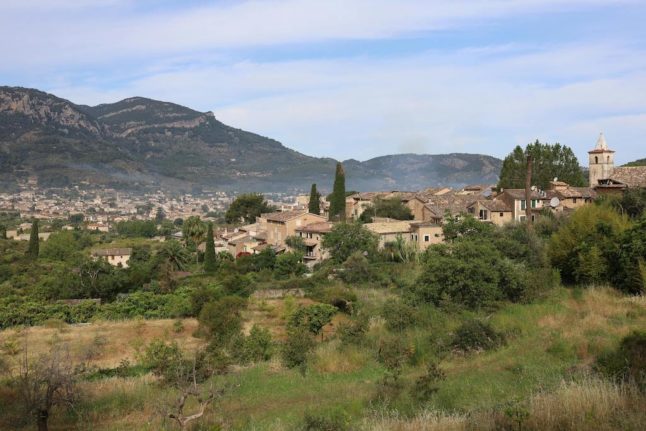In Mallorca alone, it is estimated that there may be around 30,000 of these illegal homes, but there are also several in neighbouring Menorca, Ibiza and Formentera.
In Spain land is distributed into three categories: urbano, urbanizable and rústico.
Urbano land has official municipal accreditation for residential properties to be built on it, urbanizable is theoretically meant for residential purposes but needs accreditation and often isn’t connected to the water, sewage or electricity grid yet, and rústico is rural land where residential properties cannot be built, also called no urbanizable.
READ ALSO: Where can you build on rural (rústico) land in Spain?
What’s the problem?
The situation in the Balearics is that thousands of properties were built illegally on this terreno rústico or rural land and as a result could either not be sold or owners were prevented from carrying out any maintenance work on them at all, allowing them to degrade over time.
However, the sanctioning of these buildings have now expired, so the urban authorities cannot order their demolition, but at the same time owners cannot improve them or do them up, rendering most of them useless.
With the current housing crisis and lack of affordable properties on the islands, something had to be done to rectify the situation.
The vice president of the Balearic Islands, Antoni Costa, has assured residents that the time has come to stop looking the other way and has promised to address the problem head-on.
READ ALSO: Why you should think twice before buying a coastal property in Spain
What will the new law aim to do?
The new decree law that regional president Marga Prohens aims to bring into force will allow these homes to be legal.
In exchange, the owners must pay a financial penalty proportional to the cost of the illegal construction work. This will most likely be 15 percent of the value of the work, although this hasn’t been finalised yet.
This means that swimming pools, verandas and other illegally built elements may also need to be legalised. Property owners will also have to meet new energy and water efficiency standards for their buildings.
It’s most likely that this will be carried out in a process similar to the Company Law, approved a few years ago. This will mean that the legalisation works must be approved by an architect, who will also carry out the economic valuation of the work.
For a long time now, rural or rustic land in the Balearic Islands has been highly desirable as people wanted to move away from the built-up coasts to the interior of the islands. A series of restrictive laws and regulations aimed to put a stop to this. For example, in Menorca it is prohibited to give residential use to rural land.
READ ALSO: The Balearics’ new housing law explained
What problems might they face?
Opposition parties in the Balearic islands have rejected the proposed plans, complaining that offenders will be rewarded and will now be able to sell their houses at a much higher price than they would have done.
Initial reports suggest that owners will be able to sell their properties once they’ve be legalised, but they may be prohibited from turning them into tourist rentals. Vice President Antoni Costa confirmed that most likely, these homes will not be able to be used by tourists.
In order to make the urban planning process more efficient, these buildings will no longer have to obtain a cédula de habitabilidad or certificate of habitability. However, they will still have to get a municipal license.
The Vice President defended the plan saying that these measures would contribute to solving the housing problem insisting there would be “new housing as soon as possible”.
READ ALSO: How to get Spain’s certificate of liveability for properties



 Please whitelist us to continue reading.
Please whitelist us to continue reading.
Member comments